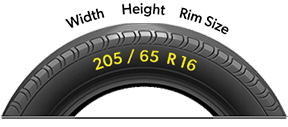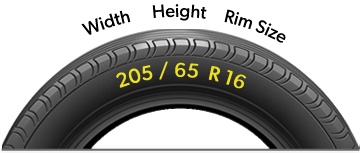Drawbacks of Using Winter Tyres in Summer
Tires perform many critical functions. It is why they have been labelled among the essential components of a car. There is no second opinion about it. Over the years, specialist tyres are also being made. They perform in specific conditions. For example, summer tires are made for driving in the summer months. Likewise, off-road tyres have been developed for driving in off-road conditions.
Tire manufacturers have always advised against using tyres in conditions for which they are not made. For example, summer tyres must not be used in winter months. Similarly, winter tires must not be used in the summer months. We have talked about using non-winter tyres in the winter months. In this article, we will discuss why driving with winter tyres in summer months is the wrong choice.
Winter Tyres & Summer Months
Winter tyres are specifically designed for use in winters. The tread design is different and is optimized for excellent traction in snow and ice. Likewise, they can handle temperatures lower than 7°C. However, what happens when you try to use these tyres in the summer months? Is it legal? Will your car's performance be affected? Is your safety being compromised?
PitStopArabia will be answering these questions in this article. We will also be talking about other aspects as well. Let us talk about why using winter tires in the summer months is a horrible choice.
Tires Wear Out Quicker
Winter tires are made for driving in cold temperatures. The rubber is designed and manufactured as such that warmer temperatures have a negative impact on it. As mentioned before, it features a unique tread which allows it to maintain excellent traction in snowy and icy roads. However, the same tread quickly wears out in warmer temperatures.
According to tire manufacturers and experts, the overall life of winter tyres is reduced by 60% when they are used in summer months. Not only will you have to replace them quicker than usual. You are also wasting a considerable amount of money on them.
Safety and Handling Issues
If you are required to take a sharp turn or apply sudden brakes, you are in for some seriously bad news. Cornering or applying sudden brakes on winter tyres in summer months is a terrible idea. The reason is that the car does not respond as efficiently to winter tyres as it would to summer or all-season tyres.
Moreover, winter tyres need a longer distance to bring a car to a halt. Hence, you are likely to hit the vehicle in front if you need applying sudden brakes. The braking distance of winter tyres increases by 10 to 26% in the summer months. 10% is for dry roads, while 26% is for wet roads.
Now consider a rapidly decreasing tread, the braking distance is undoubtedly bound to increase. Likewise, the lack of steering response will also be more significant.
Legality
In many of the previous articles, we have mentioned how summer or all-season tires are banned in many countries during winter months. These countries require the use of winter tyres. If you are seen violating this rule, fine and penalty points on your driving licence are likely. Likewise, using winter tyres in the summer months is also banned in many countries.
Therefore, you are recommended to use specific tyres for each season. It will help you avoid fines and stay on the right side of the law.
Fuel Efficiency
Another reason that winter tyres must not be used in the summer months is the impact they have on the fuel economy of your car. Fuel efficiency is directly related to the tire's rolling resistance. The lower the rolling resistance, the better it is for the fuel economy. On the other hand, if the rolling resistance is higher than the fuel consumed will be higher too.
Winter tires have a much higher rolling resistance on summer roads. Hence, you will end up paying a lot more for fuel than you would pay if you were using summer or all-season tyres.





















Conclusion
This concludes another article today. The article aims to help people acknowledge that some seasons require specific tyres to be used. If you use tyres which are not suitable for that reason, you are compromising on your safety and those of others. You are also negatively impacting the performance of your car.